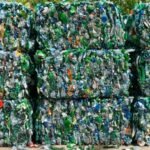A total of 100 e-waste collection bins will be placed across the state with 50 collection bins in Bengaluru alone. Different locations have been identified for placing e-waste collection bins, including Vidhana Soudha, the High Court and malls, among others.
The Karnataka State Pollution Control Board (KSPCB) will place 50 e-waste collection bins at different locations in Bengaluru, including Vidhana Soudha and the High Court, and at 100 other locations in the other parts of the state.
“This is the first-of-its-kind initiative in India. Strategic locations have been identified. Government places like Vidhana Soudha, High Court, malls etc have been identified in Bengaluru,” a senior official from KSPCB said.
According to rough estimates of the KSPCB, the state generated 1,00,250 metric tonne of e-waste of which only 40 per cent reached the recycling and refurbishment units in 2020-2021. The board has issued licences to 150 dismantlers, refurbishing and recycling units, of which only 86 are operational.
“Many units have closed. We do not have proper data to establish how much e-waste is actually generated in the state. It is a rough estimate on the basis of our tracking. Even operational units cite that they do not get enough waste to recycle, refurbish and dismantle. Last year, India generated 3.2 million tonne of e-waste of which we have a capacity to process only 1.5 million tonne of e-waste. There is approximately 50 per cent gap in the generation and treatment of e-waste,” said Rudresh Murthy, environmental officer at KSPCB.
Murthy explained that the e-waste recycling units are dominated by the informal sector and often several companies prefer discarding the waste to them at a low cost. The unregulated recycler units use open incineration and acid leaching etc affecting the environment.
“The informal channels also include recycling of electronic goods by repair shops and used product dealers. One of the impediments is to track the lifecycle of electronic and electrical equipment (EEE) which includes Beginning of Life (BOL), Middle of Life (MOL) and End of Life (EOL). Although the Central Pollution Control Board (CPCB) in 2016 introduced Extended Producer Responsibility (EPR) which holds the producer accountable for the entire lifecycle of the product, most of the e-waste enters the open dump sites. It is difficult to track the compliance of EPR targets by the EEE manufacturers,” he added.
Source: =”https://indianexpress.com/article/cities/bangalore/karnataka-kspcb-place-50-e-waste-bins-bengaluru-7766376/” target=”_blank” rel=”noopener”>https://indianexpress.com/article/cities/bangalore/karnataka-kspcb-place-50-e-waste-bins-bengaluru-7766376/














Add comment